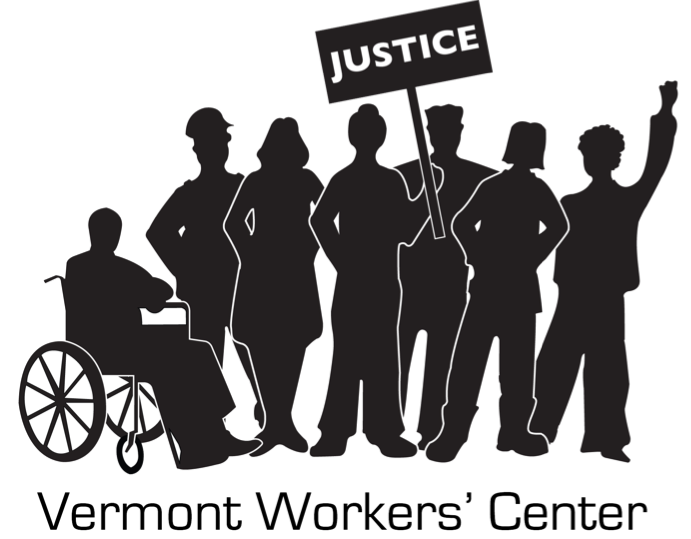(That is, except Executives and Shareholders of Mega Corporations)
Op-Ed in Rutland Herald, August 2002
by James Haslam
On August 6th the Rutland Herald ran an editorial “Back On Track” which began “President Bush signed legislation Tuesday giving him authority to negotiate international trade agreements without interference from Congress.” The editorial went on to say that, “Because of the benefits that free trade brings to the economies of both the United States and its trading partners, it is good for the president to have that authority. ” The people who would most agree with that opinion are the heads of multinational corporations. However, for the majority of people in Vermont, and in the US, and the rest of the world – the “free trade” agreements like NAFTA and Free Trade Area of the Americas are almost entirely destructive.
“Free trade” policies simply allow corporations to freely access cheaper labor markets. Manufacturing facilities are moved to poorer nations – which have miniscule wages, often terrible working conditions and far fewer environmental regulations. Often these conditions result from direct interference by the US government, international financial institutions (such as the World Bank and International Monetary Fund) and/or the multinational corporations themselves.
The idea that President Bush will be able to solely negotiate international free trade agreements – is downright terrifying. What the editorial calls “interference from Congress” is basically the way our country’s Constitution is meant to work. Through our elected representatives we have some degree of democratic control on major policies. What Bush and this paper are supporting is almost completely undemocratic.
In Vermont we are fortunate to have a representative in Washington who actually acts in the interest of the majority of Vermonters – working people. Rep. Bernie Sanders has consistently stood up for working Vermonters, and that’s a big deal.
Congressman Sanders recently released a report “The Real Cost of ‘Free Trade'”, which includes statistics that promoters of free trade policies downplay, if not ignore. For instance, the net loss of jobs as a result of these “free trade” policies from 1994-2000 totaled over 6,000 jobs in Vermont and over 3 million nationally. Ask the folks who feel free trade firsthand what they think of the North American Free Trade Agreement. Families devastated by layoffs at Shaftsbury’s Stanley Tools, Bennington’s Johnson Controls, Orleans’ Ethan Allen, Newport’s Bogner, St. Johnsbury’s Sheftex, and Springfield’s Fair-Rite Products, Cone Blanchard, and Fellows Corporation – just to name a few.
Many of these jobs were high paying blue-collar jobs, and as they leave Vermont they are being replaced with low-wage, often part-time service sector jobs. According to a report by the Vermont Department of Employment and Training the three fastest growing occupational titles through 2005 will be waiters/waitresses, retail sales and cashiers. In addition to being low-paying, these positions unfortunately also often come without any benefits. Is this the future free trade offers Vermont?
What we need are trade policies that that make sense for people and the environment. The way they are currently crafted is solely for corporate stockholder profits. The editorial rightfully pointed out the devastating results of “doctrinaire loyalty to the tenets of free trade” in Russia and Argentina. But it also stated “Bush has carried out several shamefully political acts of protectionism”. Confusingly enough, it says on one hand Bush supports free trade, which is somehow good unless left completely “free”, but on the other hand Bush is wrong for handpicking corporations to protect.
But let’s be clear, the corporations that basically run our country have never really wanted “free trade”. What they have wanted is to make as much money as possible, whatever the costs. Sometimes this means opening foreign labor and natural resource markets to corporate exploitation under the guise of “free trade”, no matter the effect on the populations at home or abroad. But in other instances, making as much money as possible means going completely against free trade policies, for example, by having major domestic industries such as aerospace, computer technology and pharmaceuticals, be highly subsidized by the public while profits go to private shareholders.
The editorial called for something they termed “free trade-plus”, which puts some fetters on corporations by including some sort of basic labor and environmental standards. Others call this crazy idea – “fair trade”. And fair trade is exactly what Rep. Sanders has been fighting for. The good news is that Vermonters and millions of people around the world are joining him in the struggle to change our economy from one focused on corporate profit, to one that puts people first.
James Haslam is the Director of the Vermont Workers’ Center, a community organization committed to fighting for workers’ rights. With questions or comments contact 802-229-0009 or info [at] workerscenter [dot] org.
